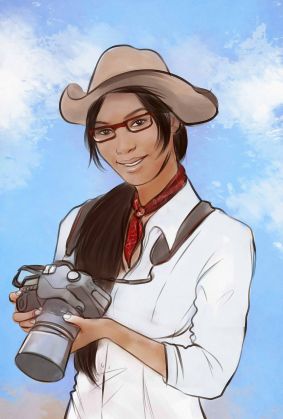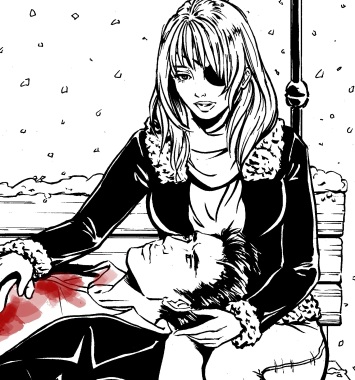
Jane DuBois, unmarketable heroine.
Once upon a time I wrote a thriller about an architect and a waitress. It had a general mystery, a creature antagonist, a human antagonist, a couple set pieces, and some modest twists. It was a simple book, and it played pretty well with the agents until they all started asking for fulls, and found out the protagonist was gay.
I’m not an idiot; I knew that would be an issue for the market, particularly in that particular science fiction thriller section – but I thought I could get away with it because it was a thriller. It had no romantic or sexual component, it was just two people trying to survive until morning. If not for one passing reference to the architect’s husband, people would’ve just assumed he was straight.
It’s lucky so many agents feel obligated to offer a few words of explanation when they pass on a full – and if not for those carefully-worded replies, I might not have known the gay thing was the issue. I’d have just thought the book didn’t work.

No one ever said anything to me about these three.
Interestingly, none of those agents had the guts to suggest that I just make the guy straight, since it wasn’t actually relevant to the story. If they had, that probably would’ve been my major league debut. It would’ve stung, but I’d probably have done it at the time.

Or this heroine.
So I wrote another thriller, this one with a straight, female protagonist. I even made sure she had a love interest, and included a decently satisfying romantic component, because I’d sensed the agents liked that.
There was lots of great stuff in that book. Paranoid bloggers, supernatural threats, a Nazi war criminal, and even a stigmata. It was cool. And there was Jane, the lead, who was a photographer. She also happened to be black.
You know how this one ends. The agents were actually much cagier about rejecting the book because of race – they’d been relatively upfront about saying they didn’t want a gay hero. With Jane, they were more like “…I don’t think I have what it takes to sell this manuscript with an ethnic lead.”
But I still got through; not one but two intrepid agents offered representation. (“I love the banter!” “These characters are fantastic!”) So I picked the one in New York and accepted. I should’ve known what she was up to – it’s what I would’ve done. But she messed up. She pressured me to change Jane from black to white before I signed the contract. Rookie.
So I shredded that contract, dodged that bullet, but I’d already turned the other one down, and I still wanted an agent.

Or this one.
So I caved and wrote a book about a white male with a white female love interest. Or rather, I wrote about a man and a woman and didn’t specify race. We all just assume.
It worked out predictably, and here we are.
It’s not like there aren’t agents and publishers that are on the lookout for more diverse stuff, but the realities of the market at large and the particular markets of specific genres speak for themselves. I feel like the world’s getting friendlier to less traditional sensibilities, which is good, even when people try too hard.*
Maybe someday we can write stories without having to worry about these things. Maybe someday people will include less traditional characters because that’s what makes for the best story, or because it accurately reflects the world we live in – not just to show everyone how open-minded and progressive they are to get free exposure.
But I won’t hold my breath. In the meantime, I’ve heard this book is worth a pre-order. They’re also giving them away at goodreads, if that’s what you’re into.
*Disney